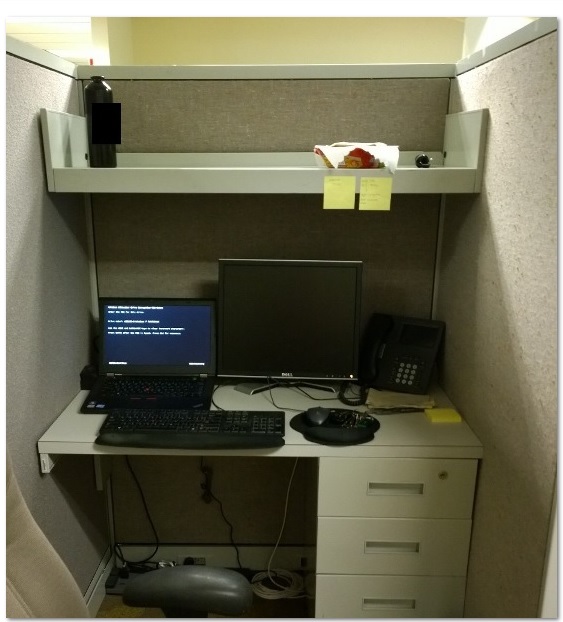How To Demoralize Employees: A Guide For Bad Companies
This guide is a translation of the opus with minor art deviations from The Daily WTF ( How To Demoralize Employees: A DIY Guide for Terrible Companies ).

PS Almost every item in one form or another has been seen in real companies. True, otherwise it would not be soridiculously sad (to choose).

- Make sure that employees do not have logins that are easily recognized by outsiders. Forget about iivanov or vpupkin and other recommendations of new-fangled trends. This can allow employees to feel like people, not the human resources of your respectable company! Accounts in Active Directory must be serial numbers according to the "grid location". Make sure that the logins correspond to the location - building number, floor, workplace. In general, follow the clear and convenient naming rules adopted in prisons / concentration camps - after all, it works great there!
- Create a long, meticulous and complex QA process that takes approximately 5 hours of working time to pass all the tests, even if no errors are detected. Require code verification in at least three different environmental checks before it is sent to the merge to the production branch. Just in case, if an employee suddenly begins to feel that this process is really useful and necessary, show him that the production server is configured in a completely different way. In general, none of the test servers matches it.
- Speaking of QA. Do not bother checking 3rd-party code. Even if this code is used to process more important business data than the main application code. While your employees spend time checking all 30 points regarding the style and quality of the main code, calmly add third-party libraries and plugins that perform critical data manipulation without transactions or using UPDLOCK recommendations correctly.
Remember: the meaning of QA is not software quality. The main reason for their existence is to have someone to dump all the bumps on if something goes wrong. - As an increase in concentration exclusively at work, provide a group of your employees with a colorless, faceless cubic open space. And for the second group, which performs almost identical tasks, arrange modern standing tables, huge empty spaces and windows with a beautiful view. Make sure that the employees of the first cube farm regularly visit the employees of the second group. But do not provide any comfort for these creatures - not even free coffee! If your employees bring their coffee, explain that it violates the rules. No coffee and donuts for your earlier morning meeting! And it does not matter that the second group appears in the office only for dinner.
- Under no circumstances should application developers talk to database administrators or have access to database management as if they were real people. All messages must go through tickets in the bugtracker. If the ticket is filled out incorrectly - neither the administrator nor the manager should be able to fix it on their own or contact the person who created it - they just need to delete / close the ticket marked “registration error” so that the developer fills out the correct ticket from scratch. And even if it leads to a violation of the deadlines - it does not matter. There is nothing more important than correctly executed tickets!
- Since we’ve started talking about this, use the most reliable (tried and tested for decades of work), albeit cumbersome Desk Manager, which you will find. It doesn’t matter that the system is old, cluttered and generally fundamentally unsuitable for agile development. All fields should use plain text, proven over the years, to prevent tables or clickable elements from being created. If an employee thinks that you can simply take and send a link to a ticket to another employee, this means that he is stupid and must be punished! Naturally, the browser on all working machines should be locked on Internet Explorer version 8.
- And in general, the rights on all working computers should be killed in the most reliable and soulless ways. Group Policy must ensure that useless things, such as browser history or Office Communicator chat history, are always disabled. The desktop background should be locked from change and installed on the company logo of a very high resolution (perhaps this will be the only bright and attractive element of the entire workplace), without the ability to disable it even for remote connection. Group policy should prohibit the user from installing any software, and consider it unsafe. And even the IT service, should not be able to install allowed software from a strictly defined list until at least three new versions of this product come out to be considered sufficiently proven in practice.
PS Almost every item in one form or another has been seen in real companies. True, otherwise it would not be so
